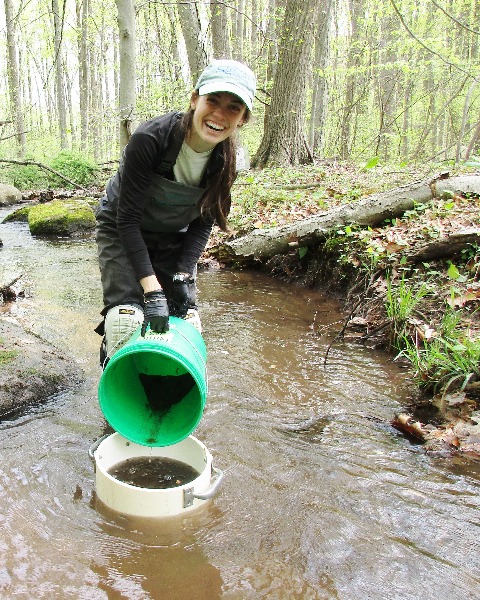Back
Plant-Insect Ecosystems
10-Minute Paper
P-IE: IPM - Field Crops 1
Can adjuvants enhance the efficacy of Heligen for controlling corn earworm (Helicoverpa zea) in sweet corn?
Sunday, November 13, 2022
8:12 AM – 8:24 AM PT
Location: Vancouver Convention Centre, Meeting Room 306

Kelly McIntyre (she/her/hers)
Lab and Research Specialist
Virginia Polytechnic Institute and State University
Blacksburg, Virginia
Tom P. Kuhar
Professor
Virginia Tech
Blacksburg, Virginia
Presenting Author(s)
Co-Author(s)
Corn earworm, Helicoverpa zea (Boddie) (Lepidoptera: Noctuidae), is a significant pest of sweet corn in the United States. Management strategies for corn earworm rely on frequent applications of insecticides, insect-resistant Bacillus thuringiensis (Bt) genetic modifications, or a combination of the two. Widespread use of pyrethroid insecticides has led to the development of resistance as well as undesirable outcomes for non-target beneficial insects. Resistance has also been observed in the most common biologically-based control, Bt, resulting in limitations for both conventional and organic growers. Lepidopteran-specific baculoviruses (e.g., HearNPV) offer an organic alternative though control outcomes have been inconsistent. It is unknown whether adjuvants can enhance residual time and overall efficacy of HearNPV. In this study we assessed the effect of adding the biological insecticide optimizer Optimol, which contains molasses and petroleum oil, to a HearNPV product, Heligen®, for control of corn earworm in sweet corn in Blacksburg, Virginia. Treatment was initiated at the presence of silks and applications were made on 22, 24, 26, 29, 31 August and 2, 6 September 2022. All primary ears were harvested upon maturity and graded for lepidopteran damage. Data were analyzed with ANOVA, and means separated according to Fisher LSD. There were no significant differences (P = 0.05) among Heligen®-based treatments, though Heligen alone had reduced damage compared to the untreated control.

